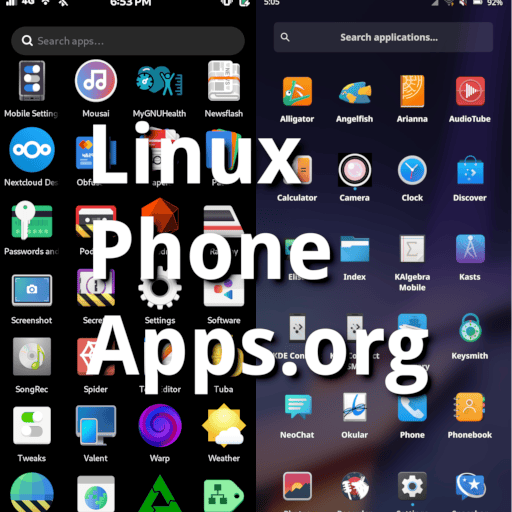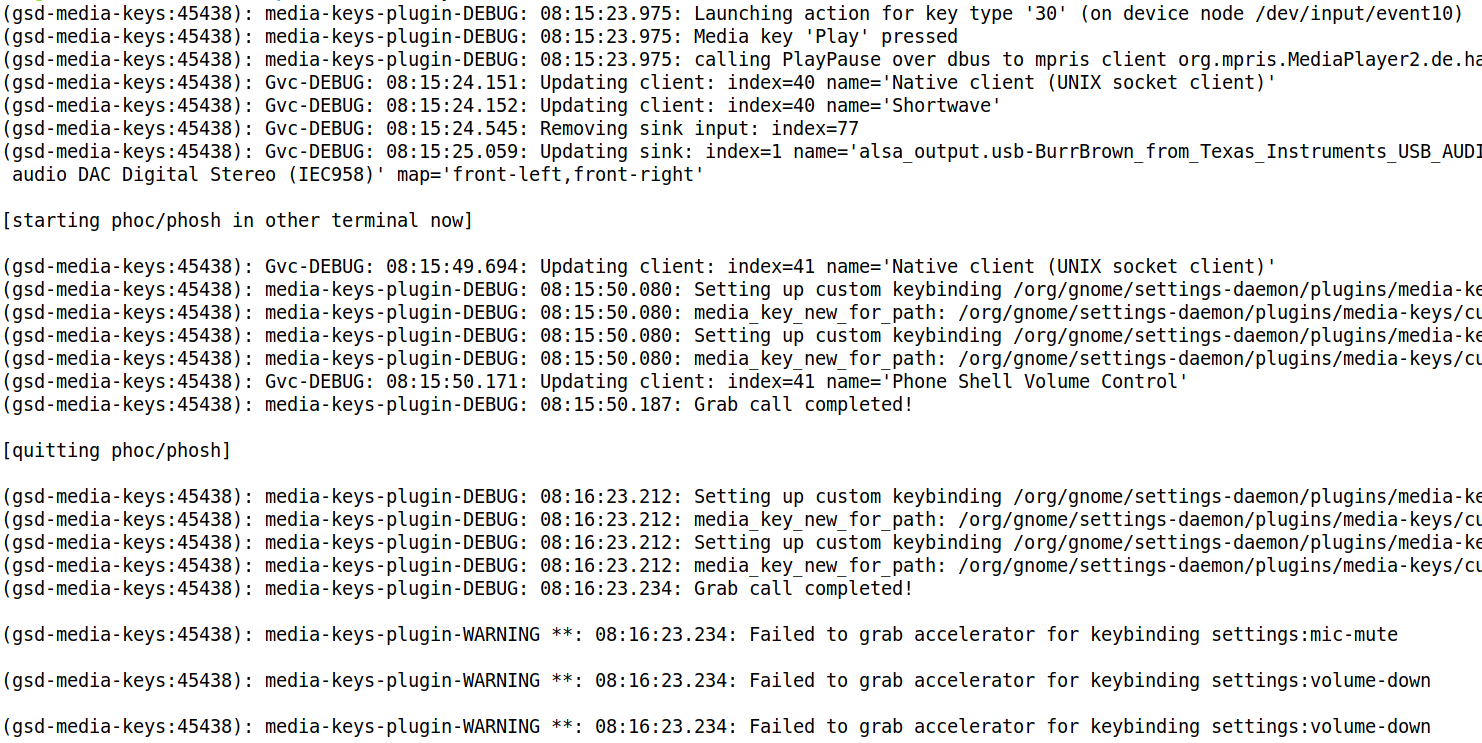Receiving SMS plays a long tune on my #Librem5. For a few persons I'd like to have this tune played also if they send me a message using #matrix.
A problem is that the #fractal flatpak does not use #feedbackd yet to signal new messages and on #PureOS #Byzantium there's no way to define different sounds for different notification events.
So I started testing a small script to read notifications and trigger feedback for messages coming from an account containing some string:
#!/usr/bin/python3 import gi import time gi.require_version('Lfb', '0.0') from gi.repository import Lfb from gi.repository import GLib import dbus from dbus.mainloop.glib import DBusGMainLoop def print_notification(bus, message): keys = ["app_name", "replaces_id", "app_icon", "summary", "body", "actions", "hints", "expire_timeout"] args = message.get_args_list() if len(args) == 8: notification = dict([(keys[i], args[i]) for i in range(8)]) if "account_i_want_to_be_notified_for_like_it_would_be_sms" in notification["summary"]: print( notification["summary"], ': ', notification["body"] ) event.trigger_feedback() Lfb.init('org.sigxcpu.lfbexample') event = Lfb.Event.new('message-new-sms') loop = DBusGMainLoop(set_as_default=True) session_bus = dbus.SessionBus() session_bus.add_match_string("type='method_call',interface='org.freedesktop.Notifications',member='Notify',eavesdrop=true") session_bus.add_message_filter(print_notification) GLib.MainLoop().run()
Problem: using calendar on my #Librem5 running #PureOS Byzantiu once in a while I can't add new appointments anymore and the calendar doesn't sync with my #nextcloud.
A simple goa-daemon --replace solved the problem when it occured. I automated this reading the error shown in the journal when the problem starts.
I made a workaround to monitor and replace the goa-daemon:
@Dimension@fosstodon.org, you seem not to follow the development very closely. If you want to stay tuned I'd suggest you follow @linmob@fosstodon.org who assembles regularly a nice overview over what happens inside the mobile eco system.
The battery life became a lot better. I'm using a Librem5 since early 2022. I charge it during night and use it during day. In case I could be running out of power I keep a second battery around.
The development of #PureOS #Crimson got stuck somewhat lately, but it's already deployed on the #Librem11 and it already works somewhat on the Librem5.
If you look for hardware less open, secure and privacy respecting with improved battery runtime you should look at the #postmarketOS pages for a device.
The #Pinephone of my son regularly gets updates from postmarketOS.
Look at #LinuxPhoneApps https://linuxphoneapps.org/ to find native software. I lost track following all the latest additions.
After playing around with phoc/phosh on my notebook I found that the media-keys in gnome didn't work anymore after closing #phoc and #phosh.
Later on I wasn't able to suspend my #Librem14 running #PureOS #Byzantium with #Gnome (3.38.5) on #Wayland by hitting Fn-Esc.
It turned out that the gsd-media-keys¹ daemon got confused over phosh grabbing and releasing the controls.
Stopping the daemon via killall gsd-media-keys and re-starting it using systemctl start org.gnome.SettingsDaemon.MediaKeys.target or executing /usr/libexec/gsd-media-keys &, disown %1 restored the functioning of the hotkeys.
Didn't file an issue, yet, because I don't know if this is reproducible in newer versions of Gnome. @agx@social.librem.one, maybe it'd be nice to add some information to the article in case people wonder why there hotkeys do not work after following those instructions?
¹this is the only documentation I found describing in short what the daemon does - any hints to newer official sources are welcome





